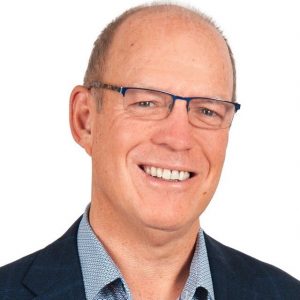To celebrate World Teachers Day, we decided to sit down for a Q&A with one of our facilitators. Here is what he had to say..
Q&A with John Scotland – Facilitator, Trainer / Assessor & Coach

Question 1 – Who was your favourite teacher at school and why?
I have always loved words and the meaning of things. A fact has no meaning if we don’t understand its place in, and its impact on our lives and community. When a simple word is linked to another it can create a whole new meaning: think of the word ‘red’. ‘The red book’ could just mean the colour of the book cover to most people. To those growing up in the 1960’s and early 70’s it creates instant memories of the China of Mao Tse Tung and his “Little Red Book”.
Mr Frank Harmer was my modern history teacher in years 11 and 12. A burly red-faced portly man. He was a story-teller, and he made history live. All he had as his teaching aide was a chalkboard – no videos, white boards or computers. We did watch the very infrequent movie on the television or using the school’s movie projector. At the beginning of class he would ask someone to tell the story we covered in the previous lesson: just the story, and what it meant to people, the community and if relevant, the tides of the world at the time. He wasn’t too worried about the dates being totally accurate, he was happy if they were mostly correct; he wanted the story and what it meant at the time of the event, but more importantly, what it means to us in the present time.
Much of the modern history we learnt was European centric. The Renaissance, the Enlightenment, the Industrial Revolution, humanism, rise of democracy, socialism, fascism, including the European Wars and then leading into World War 1 – the Gallipoli campaign, the Middle East and the Western Front. Then the post-war depression leading into Nazism, World War 2 and its aftermath. To Frank, these were not just a set of facts and events – these were people, ideas and actions that were instrumental in the development of Australia as a democracy and a highly collaborative society. And he wanted us to understand more than just the facts. He wanted us to experience these as much as possible in our own way. So he had us identify how the ideas and actions of people that had shaped Europe had been adapted into and become part of our own Australian experience.
So I learnt about the value and beauty of a human life, our creativity and innovation, the importance of our ideas – our precious vote and parliamentary representation – and the tyranny of totalitarianism, the benefits of science, the beauty and difficulties in religion, how to create an argument. I learnt that my world will only change if I change. And I can only change if I explore and apply new ideas and change my habits of thinking and behaviour.
My one major regret about my teachers – we hardly ever discussed Australia’s very rich Indigenous heritage.
And now, having worked with many mining, engineering and manufacturing companies, government agencies, aged care providers, and others, I have always wanted to see if I could make a difference to the working and personal lives of people who attend or are involved in my training, consulting or mediation work. And I always remember Frank and ask myself – how can I help these people make the learning real? How can I help them apply the learning to their work and personal lives? How can they make a new habit that will accelerate their progress and their achievement?
Thank you Frank
Question 2 – If you could be taught by anyone in the world who would you choose?
My favourite teacher and role model is Colin James. He is Australian and is one of the world’s most engaging and effective teachers. He promises to engage, support and inspire people to the possibility of new levels of performance and achievement. And he delivers!
Colin is a master of his craft. He has control over his language, his voice and his body. He uses his stage (all areas of his venue) perfectly. For his presentation aides, he only uses flip chart drawings and notes. Yet he can hold and engage an audience spell-bound for hours at a time.
He does not use workbooks, he is not hyperbolic. He facilitates topics that are not necessarily new, but develops them in new ways. In simple terms he outlines key principles, reinforces them with humour and gives people many experiences that reinforce new ways they can think, feel and behave to achieve.
Question 3 – What do you love about teaching?
When involved in “teaching” I use a number of different modes aimed at helping people learn: facilitation, training, teaching and coaching. Each mode has its own skill base and processes. My preferred mode is facilitation. I love the whole facilitation process – because most adults already know something or even a lot about a particular topic. Rather than teach something they already know, I enjoy facilitating their recall and disclosure of relevant knowledge and experiences, then I build on that.
I enjoy planning when and how I will use the modes. An exciting part is when I will sometimes make a split second decision about whether to facilitate some learning or teach it. Do I train a skill or build on existing knowledge and coach instead? ? I will often only know the right process as I get to know the group and see how they are responding to the topic and the requirements of the learning.
I love engaging with a new group of people, helping them overcome anxieties about attending the program or meeting new people, seeing them relax, getting to know other people, disclosing parts of themselves/their experience, engage in the learning process and then contribute to or even lead the learning as a true participant.
I love seeing people get excited about their learning. So I love developing effective learning processes for any topic or for any audience, that will get them excited and engaged. I love the freedom to invent and apply a learning process in real time during the training program and within 1 minute or two. Often I will build on a comment or a real experience of a participant and we will have a whole new scenario where everyone can apply the learning in real time to a situation to which they easily relate.
I love it when a powerpoint slide that I have worked on for ages, elicits a strong silence of wonder or contemplation.
I love hearing that voice or sigh of recognition – that “hey yes I now get that” – “the Ah ha moment”.
I love it when people share their fears, their difficulties, where they are so open to learning and developing new mindsets and behaviours, that they are comfortable to challenge their own point of view or tightly held belief, in public, in front of the whole training group or audience.
I love how groups set the guidelines for how they will foster their learning, then how they apply them to themselves and also to me. How they give me feedback during the program and help me modify how I am so they can learn best.
I love reading the feedback at the end – yes there are positive comments. But when people write their suggestions for how I can improve, it’s like a piece of gold. I learn too.
I love it when weeks or months later I meet a past participant in one of my programs, and they tell me how much their involvement has helped them or contributed in some way in their life.
I love teaching (there’s more, but I had better stop before you get bored.)





